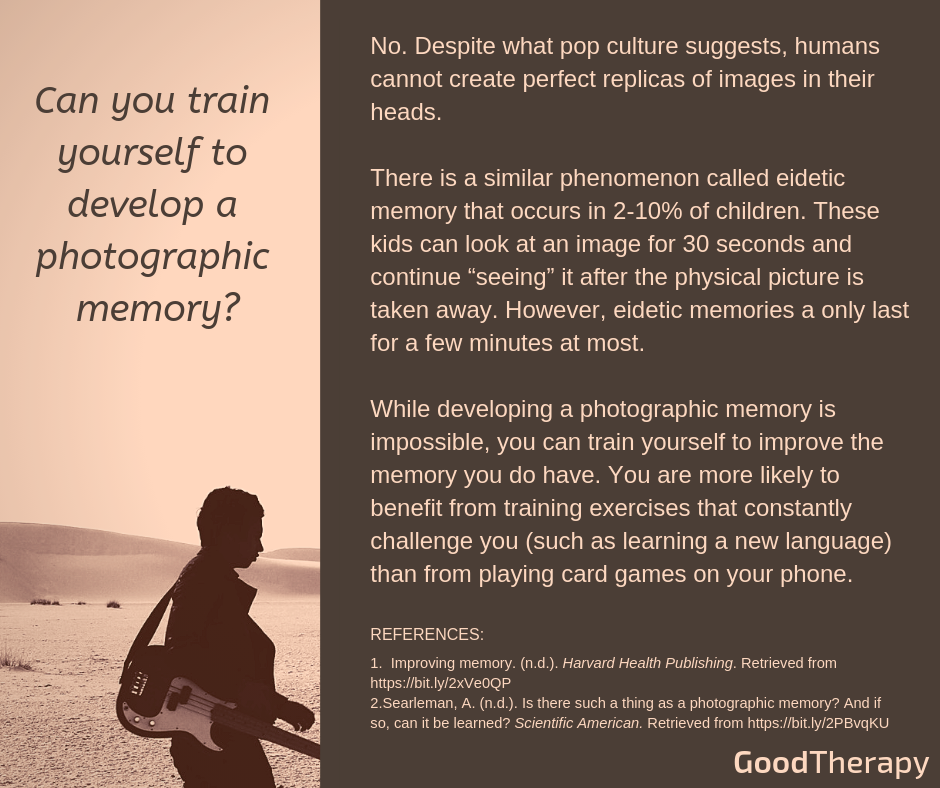Infographic Text: Can you train yourself to develop a photographic memory?
No. Despite what pop culture suggests, humans cannot create perfect replicas of images in their heads.
There is a similar phenomenon called eidetic memory that occurs in 2-10% of children. These kids can look at an image for 30 seconds and then continue “seeing” it after the physical picture is taken away. However, eidetic memories only last for a few minutes at most.
While developing a photographic memory is impossible, you can train yourself to improve the memory you do have. You are more likely to benefit from training exercises that constantly challenge you (such as learning a new language) than from playing card games on your phone.
References:
- Improving memory. (n.d.). Harvard Health Publishing. Retrieved from https://bit.ly/2xVe0QP
- Searleman, A. (n.d.). Is there such a thing as a photographic memory? And if so, can it be learned? Scientific American. Retrieved from https://bit.ly/2PBvqKU

The preceding article was solely written by the author named above. Any views and opinions expressed are not necessarily shared by GoodTherapy.org. Questions or concerns about the preceding article can be directed to the author or posted as a comment below.




Please fill out all required fields to submit your message.
Invalid Email Address.
Please confirm that you are human.
Leave a Comment
By commenting you acknowledge acceptance of GoodTherapy.org's Terms and Conditions of Use.